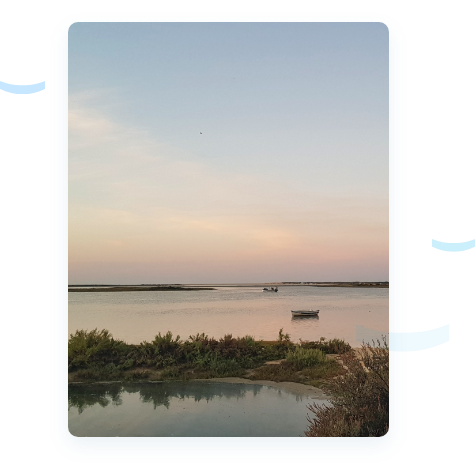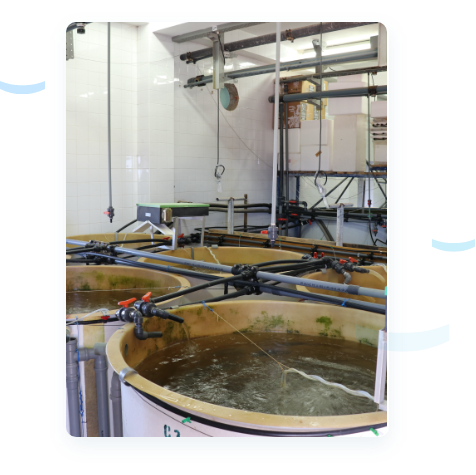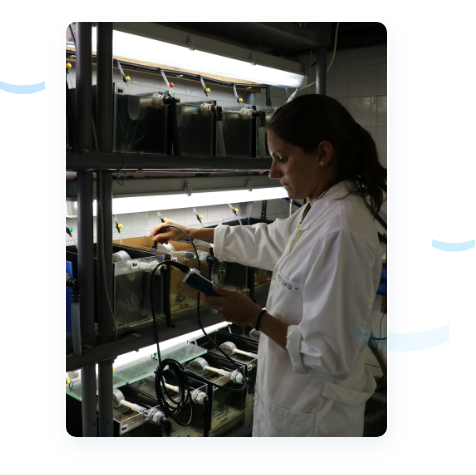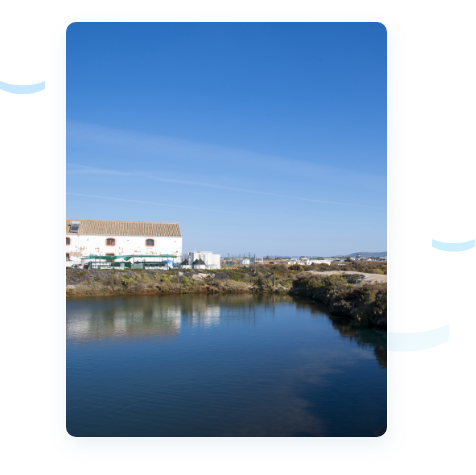Ramalhete Marine Station
Located at the heart of the Ria Formosa coastal lagoon, in the South of Portugal, the Ramalhete Marine Station is an aquarium facility for experiments in several marine research areas, including nutrition, behaviour and physiology studies. Managed by CCMAR-Algarve, Ramalhete offers both indoor and outdoor tanks supplied with filtered flow-through natural sea water with different capacities (from 100L to 9000L). From batteries of small tanks for breeding seahorses to the simulation of ocean acidification scenarios and large outdoor mesocosms, the Ramalhete is a versatile experimental facility for the maintenance and experimentation with marine organisms.

Versatile facilities
The main building of the Ramalhete Marine Station includes 500 m2 of indoor tank facilities, isolated and environmentally controlled rooms for behaviour studies, and wet and dry laboratories. Next to the building, an outdoor area covering 900 m2 is used for larger volume tanks and other needs. The station also includes 4 hectares of surrounding salt pan and marsh system habitats. Both the indoor and outdoor tank facilities receive water directly from Ria Formosa and well-water is used to regulate salinity.
Ramalhete is particularly suited for experimentation with marine organisms, including fish, macroalgae, and bivalves. Species available at the station include the Senegalese sole (Sole senegalensis), the gilt-head bream (Sparus aurata) and the European seabass (Dicentrachus labrax). It offers tailored experimental setups with indoor/outdoor tanks of various sizes (100L (n=24); 500L (n=20); 1000L (n=22); 3000L (n=3); 9000L (n=5) set in flow-through systems supplied with filtered natural seawater collected in the nearby lagoon channel. Tanks and space can be adapted to provide specific controlled environments to fulfill experimental needs, including temperature control, photoperiod, light intensity and salinity. In particular, a battery of 24 100L-tanks in a flow-through with three levels of CO2 are optimized to simulating oceanic acidification scenarios.

Added value
In addition to the facilities and aquaria offered at the Ramalhete Marine Station, several research laboratories and technology platforms located nearby, in the Gambelas Campus of the University of Algarve, complement the services provided at CCMAR. Complementary services include Sanger sequencing, proteomics, analytical and structural chemistry, imaging and a bioinformatics computational cluster, among others.

A centuries-old marine station
The construction date of the main building of the Ramalhete Marine Station is unknown, yet the building was part of an 'almadrava' (large tuna trap operation) called 'Ramalhete'. Historic records show that its exploitation by the 'Companhia das Reaes Pescarias' dates back to 1797. Tuna traps occupied the entire coastal area of the Algarve, from Vila Real de Santo António to Aljezur. In 1935, at the peak of the tuna fishery operations in the Algarve, three tuna traps covered about 10 hectares of sea area in the coastal area off Faro – one of them was Ramalhete. Tuna traps were an important source of income in the region until the 1970s, when tuna catches decreased dramatically.
The abandoned building was acquired in the 1990’s by the University of Algarve and was converted into a marine station. Nowadays, it is managed by the Algarve Centre of Marine Sciences (CCMAR-Algarve). In 2021, in recognition of its rich and particular history, the City Hall of Faro approved the classification of the Ramalhete Marine Station as Property of Municipal Interest.









